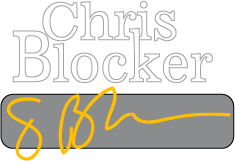
I have a Master’s in Writing, but I am by no means a master of the English language. Spend enough time with this website and you’ll find that out. I know people who always know the right word, the right tense, and can easily identify the part of speech–though I aspire to be more like them, invariably I fail. This is most evident in my speech. The neural pathways that tell my mouth what to say are ten times slower than those that lead to my hands. When it comes to the English language, I can be quite a buffoon.
Despite my linguistic debilities, I continue to be a writer. I have a story to tell–several actually–and letting my insecurities get in the way of my passion seems a horrible excuse. Many of my contemporaries would be appalled. I’ve heard that before I ever consider publishing any of my work, I should have a better handle on the English language. While I agree with this in part, I think there are a few things writers in my position should think about.
- Your story is more important than your grammar
Naturally the better you know the language, the better you will be able to use it to your advantage. Similarly an architect with knowledge of only a few building materials and tools is limited–that didn’t stop the building of the pyramids. If you have a story to tell, tell it. Continue to learn about your craft, but don’t wait until you’ve mastered it. By the time you do, you may find yourself a Pharaoh without a tomb. - Trust the editor within
Given time, your self-editing will improve. Every time you read a well-written book, you absorb rules of composition. Every time you write, you practice some of these rules subconsciously. You will, with time, be a better editor. Read your work aloud and listen to what you’re saying. If you stumble over something, there’s a reason. Trust your voice and your judgment. - Know that great writers use bad grammar
If you think every accomplished writer writes with such precision naturally, you’re wrong. Some do. And some of those writers are among the driest. If available, find an early draft from a writer you adore. You’ll probably catch things you know are wrong that this “genius” writer you look up to didn’t catch. What is important is getting the words on the page; stopping to consider every noun, pronoun, semi-colon, etc. will only get in the way of accomplishing this simple act.
Publishers aren’t going to pick up a story that will require a major overhaul, but they’re also not going to pass up a great story that needs work. Write the story you have to tell, do your best to make it as perfect as you can, and then let go, give it over to the professionals and learn from the experience. Know that as long as you keep that story in your head, waiting until you think you’re properly trained, you’re like every other person you meet on the street who says “I have a book or two in my head.” Don’t tell them I said so, but your idea is probably better than theirs. Now’s the time to make it happen.

0 comments on “The Writer, The Editor” Add yours →